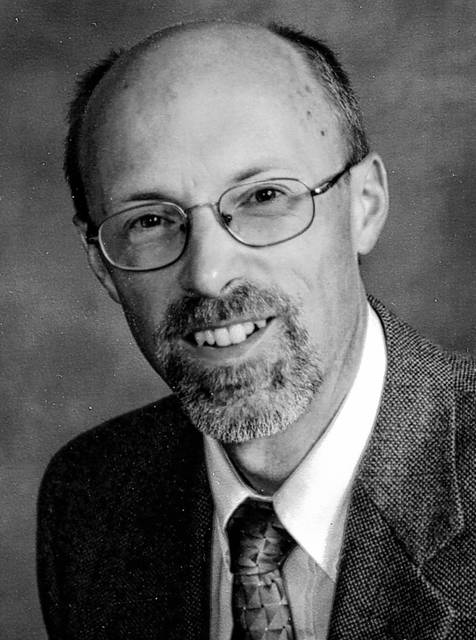
Ever since they extended the walking path on Central Avenue to Houk Road, our son Andrew has been wanting to walk to church. I told him that I would like to do that, but we’d have to wait for a day that was not as hot and humid.
With a cold front arriving by Saturday evening, we decided to walk the three miles from the parsonage to the church. I estimated that it would take an hour, but I thought we should have a back-up plan. My wife, Tammey, would pick us up if it looked as if we would be late.
The least enjoyable part of the walk was the first quarter-mile. On Warrensburg Road there is no sidewalk nor even much of a berm. The cars pass you as if they are on the interstate, even though there is a stoplight just ahead. But once we crossed Central and Houk, it was a relaxing walk.
The nice thing about walking is that you see a lot more than you see when you are driving. We saw someone sitting on her porch drinking coffee, someone else standing outside smoking, a few children playing, some dog walkers, and of course, people mowing their lawns.
Tammey had ordered us iced coffee at Panera, so that was our one pitstop. I was wearing my clergy shirt, because it is cooler than wearing a shirt and tie. An older man said to me, “God bless you!” So there is still some respect for clergy, in spite of recent surveys.
As we walked under the “can opener,” I couldn’t help thinking about how many trucks had hit it, how much structural damage that had caused, and what were the odds of it collapsing while we were under it.
As we got closer to town, we began to pass churches. Delaware is the Baskin-Robbins of churches. You can choose from 31 varieties, and I don’t see why people need to leave town to find one that suits them. We talk about “buying local.” What about “worshipping local”?
I don’t care whether a church is “contemporary” or “traditional,” “liberal” or “conservative.” Those labels do not mean much. What matters is that in each church, a person would hear a word that they would not likely hear any place else, and that is “grace.”
Grace means “undeserved acceptance and love received by another.” In the Christian sense, it is the saving activity of God manifested in the gift of Jesus Christ.
Journalist Philip Yancey says that he left the church of his childhood because he found so little grace there. Maybe you have also left a church for that reason.
However, we have to be careful that we not equate leaving church with finding grace because there is a lot of cruelty and exploitation outside the church walls. As Philip Yancey writes, “I left the church because I found so little grace there. I returned because I found so little grace anywhere else.”
Grace and gratitude come from the same root and are closely related linguistically. We speak of a “gracious host,” and the associations are positive. As Fred Craddock writes, “Thanksgiving is by its very nature joyful, pleasant, and an occasion for delight. Gratitude is not sad, grudging or mean.”
Gratitude is at the heart of the spiritual life. A grateful person is more likely to be generous and kind. A grateful person is less likely to waste and abuse our natural resources. And the best thing about gratitude is that it is not dependent upon favorable circumstances.
A grateful person expresses gratitude even in the most meager situations. When Jesus talked with the little boy with the five barley loaves and two fish, he felt gratitude in his heart because the boy was willing to share what he had.
Jesus said, “Make the people sit down.” And the disciples did what he told them. They didn’t have a discussion or a debate or suggest that he didn’t know what he was doing. They just did it. There’s something to be said for that.
“Then Jesus took the loaves, and when he had given thanks, he distributed them to those who were seated; so also the fish, as much as they wanted.”
And that is when we realize that the gospel writer has taken us far beyond that scene in Palestine. This is the language of communion, which is beyond the language of time and place. It is the language of eternity.
Eucharisto, the Greek word for “I give thanks,” from which we get the word eucharist.
On many church calendars, this Sunday is designated “World Communion Sunday.” As we come to the Lord’s table, we remember that we are joining with brothers and sisters in this community and around the world. And that is also something for which we give thanks.


